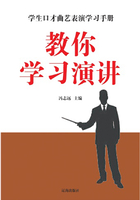The principle of authority, for example, had the 11th century, just as the principle of individualism had the 18th century. In logical sequence, it was the century that belonged to the principle, and not the principle which belonged to the century. When, consequently, in order to save principles as much as to save history, we ask ourselves why a particular principle was manifested in the 11th century or in the 18th century rather than in any other, we are necessarily forced to examine minutely what men were like in the 11th century, what they were like in the 18th, what were their respective needs, their productive forces, their mode of production, the raw materials of their production -- in short, what were the relations between man and man which resulted from all these conditions of existence.
To get to the bottom of all these questions -- what is this but to draw up the real, profane history of men in every century and to present these men as both the authors and the actors of their own drama? But the moment you present men as the actors and authors of their own history, you arrive -- by detour -- at the real starting point, because you have abandoned those eternal principles of which you spoke at the outset.
M. Proudhon has not even gone far enough along the crossroad which an ideologist takes to reach the main road of history.
Sixth Observation Let us take the crossroad with M. Proudhon.
We shall concede that economic relations, viewed as immutable laws, eternal principles, ideal categories, existed before active and energetic men did; we shall concede further that these laws, principles and categories had, since the beginning of time, slumbered "in the impersonal reason of humanity". We have already seen that, with all these changeless and motionless eternities, there is no history left; there is at most history in the idea, that is, history reflected in the dialectic movement of pure reason. M.
Proudhon, by saying that, in the dialectic movement ideas are no longer differentiated, has done away with both the shadow of movement and the movement of shadows, by means of which one could still have created at least a semblance of history. Instead of that, he imputes to history his own impotence. He lays the blame on everything, even the French language.
"It is not correct then," says M. Proudhon, the philosopher, "to say that something appears, that something is produced: in civilization as in the universe, everything has existed, has acted, from eternity. This applies to the whole of social economy."(Vol.II, p.102)
So great is the productive force of the contradictions which function and which made M. Proudhon function, that, in trying to explain history, he is forced to deny it; in trying to explain the successive appearance of social relations, he denies that anything can appear: in trying to explain production, with all its phases, he questions whether anything can be produced!
Thus, for M. Proudhon, there is no longer any history: no longer any sequence of ideas. And yet his book till exists; and it is precisely that book which is, to use his own expression, "history according to the sequence of ideas". How shall we find a formula, for M. Proudhon is a man of formulas, to help him to clear all these contradictions in one leap?
To this end he has invented a new reason, which is neither the pure and virgin absolute reason, nor the common reason of men living and acting in different periods, but a reason quite apart -- the reason of the person, Society -- of the subject, Humanity -- which under the pen of M. Proudhon figures at times also as social genius, general reason, or finally as human reason. This reason, decked out under so many names, betrays itself nevertheless, at every moment, as the individual reason of M. Proudhon, with its good and its bad side, its antidotes and its problems.
"Human reason does not create truth", hidden in the depths of absolute, eternal reason. It can only unveil it. But such truths as it has unveiled up to now are incomplete, insufficient, and consequently contradictory.
Hence, economic categories, being themselves truths discovered, revealed by human reason, by social genius, are equally incomplete and contain within themselves the germ of contradictions. before M. Proudhon, social genius saw only the antagonistic elements, and not the synthetic formula, both hidden simultaneously in absolute reason. Economic relations, which merely realize on earth these insufficient truths, these incomplete ideas, are consequently contradictory in themselves, and present two sides, one good, the other bad.
To find complete truth, the idea, in all its fullness, the synthetic formula that is to annihilate the contradiction, this is the problem of social genius. This again is why, in M. Proudhon's illusion, this same social genius has been harried from one category to another without ever having been able, despite all its battery of categories, to snatch from God or from absolute reason, a synthetic formula.
"At first, society (social genius) states a primary fact, puts forward a hypothesis... a veritable antinomy, whose antagonistic results develop in the social economy in the same way as its consequences could have been deduced in the mind; so that industrial movement, following in all things the deduction of ideas, splits up into two currents, one of useful effects, the other of subversive results. To bring harmony into the constitution of this two-side principle, and to solve this antinomy, society gives rise to a second, which will soon be followed by a third; and progress of social genius will take place in this manner, until, having exhausted all its contradictions -- I suppose, but it is not proved that there is a limit to human contradictions -- it returns in one leap to all its former positions and with a single formula solves all its problems."(Vol.I p.133)















